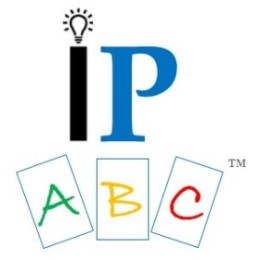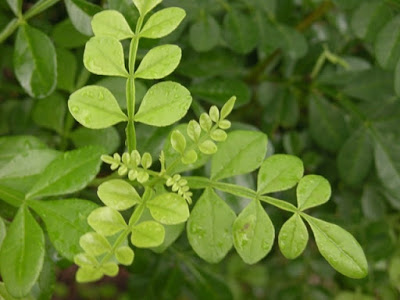
Question of the Week
I
am Anwuli Okafor, a Biotechnologist and Lead Researcher at Science &
Wonders, a R & D center in Degema Local Government Area, Rivers State. We
conduct research on genetic variation, medicine, and plant science.
am Anwuli Okafor, a Biotechnologist and Lead Researcher at Science &
Wonders, a R & D center in Degema Local Government Area, Rivers State. We
conduct research on genetic variation, medicine, and plant science.
For over 3 years, my team and I have been involved in intensive research on a
special biological process for producing a plant we call Harmarain, a special
plant that adapts to both harmattan season and rainy season to boost food
production. We believe that Harmarain is a new invention and would like to
patent it. For this purpose, we consulted a patent agent. The patent agent
requested we share details of our Harmarain invention, including the drawing.
Our questions are: (1) In the process of our research, we developed new
principles and made new discoveries of plant biological processes we also wish
to patent in our name. Can we? (2) How do we share the details of our
invention, including drawings, without the risk of losing our invention to a
third party?
Answer
The answer to your first question is NO.
Principles and discoveries of a scientific nature, such as the biological
process on plant production, as you have discovered and developed, are not
patentable under Nigeria’s Patents and Designs Act. This is because they
are not inventions but merely principles and discoveries.
Principles and discoveries of a scientific nature, such as the biological
process on plant production, as you have discovered and developed, are not
patentable under Nigeria’s Patents and Designs Act. This is because they
are not inventions but merely principles and discoveries.
Regarding your second question on disclosing
the details of your invention, including drawings, you require a
confidentiality or non-disclosure agreement.
the details of your invention, including drawings, you require a
confidentiality or non-disclosure agreement.
Though you didnt ask, your Harmarain
biological plant process may not be patentable in Nigeria.
biological plant process may not be patentable in Nigeria.
Principles
and discoveries of a scientific nature are not patentable because they are not
inventions in the first place.
and discoveries of a scientific nature are not patentable because they are not
inventions in the first place.
Section 1(5) of Nigeria’s Patents and Designs
Act states that principles and discoveries of a scientific nature are not
inventions for the purposes of the Act.
Act states that principles and discoveries of a scientific nature are not
inventions for the purposes of the Act.
Though the Act requires that for an invention
to be patentable, it must be new, be a result of an inventive activity, and
capable of industrial application, the Act does not accept principles and
discoveries of a scientific nature to be inventions at all.
to be patentable, it must be new, be a result of an inventive activity, and
capable of industrial application, the Act does not accept principles and
discoveries of a scientific nature to be inventions at all.
Did the drafters of the Act see these
principles and discoveries as some kind of magic or voodoo that should never be
granted patent? No. Patents are granted for application of knowledge to provide
industrial solutions (just as others create new problems!), not for knowledge
itself. Principles and discoveries are a body of knowledge, not inventions.
principles and discoveries as some kind of magic or voodoo that should never be
granted patent? No. Patents are granted for application of knowledge to provide
industrial solutions (just as others create new problems!), not for knowledge
itself. Principles and discoveries are a body of knowledge, not inventions.

So a patent may not be granted for discovery
of the science of solar energy, for example, but patents have been granted for
inventive solar-powered panels.
of the science of solar energy, for example, but patents have been granted for
inventive solar-powered panels.
To
prevent the disclosure of your invention including drawings, get the patent
agent to sign a confidentiality or non-disclosure agreement.
prevent the disclosure of your invention including drawings, get the patent
agent to sign a confidentiality or non-disclosure agreement.
One irony about patent is disclosure. Before
you can get a grant of patent, you have to fully disclose your invention when
filing your application for patent. Section 3(1)(a)(ii) of the Patents and
Designs Act requires a description of the relevant invention with any
appropriate plans and drawings. For this purpose, you are required to disclose
the relevant invention in a manner sufficiently clear and complete for the
invention to be put into effect by a person skilled in the art or field of
knowledge to which the invention relates—section 3(2) of the Act. If the patent
agent gets this wrong, the patent may be invalidated in a court of law. So
disclose sufficiently.
you can get a grant of patent, you have to fully disclose your invention when
filing your application for patent. Section 3(1)(a)(ii) of the Patents and
Designs Act requires a description of the relevant invention with any
appropriate plans and drawings. For this purpose, you are required to disclose
the relevant invention in a manner sufficiently clear and complete for the
invention to be put into effect by a person skilled in the art or field of
knowledge to which the invention relates—section 3(2) of the Act. If the patent
agent gets this wrong, the patent may be invalidated in a court of law. So
disclose sufficiently.
Apart from when filing patent applications,
disclosing your invention before applying for patent is unavoidable in certain
situations. Business partners, potential inventors, or—in this case—patent
agents may require this. If you say NO, you may never be an inventor. Instead,
use a confidentiality or non-disclosure agreement. Use it before you disclose,
never after so you can be happy ever after.
disclosing your invention before applying for patent is unavoidable in certain
situations. Business partners, potential inventors, or—in this case—patent
agents may require this. If you say NO, you may never be an inventor. Instead,
use a confidentiality or non-disclosure agreement. Use it before you disclose,
never after so you can be happy ever after.
Avoid simply downloading just any confidentiality
or non-disclosure agreement—or any legal document for that matter—online.
Simply downloading a template or a completed one from the Internet may be
dangerous. You may pay more for it eventually when things go wrong. And it may
be too late to fix it.
or non-disclosure agreement—or any legal document for that matter—online.
Simply downloading a template or a completed one from the Internet may be
dangerous. You may pay more for it eventually when things go wrong. And it may
be too late to fix it.
Always
have your confidentiality or non-disclosure agreement well-drafted and
well-reviewed by an IP attorney, tailored to your use.
have your confidentiality or non-disclosure agreement well-drafted and
well-reviewed by an IP attorney, tailored to your use.
Bad
News: Harmarain may not be patentable in Nigeria because the invention is in
respect of a biological process for plant production.
News: Harmarain may not be patentable in Nigeria because the invention is in
respect of a biological process for plant production.
Sorry to break the news.
This is the position in section 1(4)(a) of
Nigeria’s Patents and Designs Act. It states that patents cannot validly be
granted or obtained in respect of plant or animal varieties, or essentially
biological processes for the production of plants or animals.
Nigeria’s Patents and Designs Act. It states that patents cannot validly be
granted or obtained in respect of plant or animal varieties, or essentially
biological processes for the production of plants or animals.
Except you are able to show in your
specification that Harmarain is a product of a microbiological process in your
plant production, it is not eligible for grant of patent in Nigeria.
specification that Harmarain is a product of a microbiological process in your
plant production, it is not eligible for grant of patent in Nigeria.
For
a comprehensive legal advice and guidance, you may consult an IP lawyer or law
firm.
a comprehensive legal advice and guidance, you may consult an IP lawyer or law
firm.
Best wishes
IP
ABC
ABC
Follow-up
questions, if any, are welcomed.
questions, if any, are welcomed.
Source – www.infusionlawyers.com
